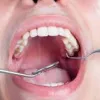What should I do if I experience dental problems due to diabetes?
Introduction
Living with diabetes can come with its fair share of challenges. It not only affects your blood sugar levels and overall health but can also have an impact on various parts of your body, including your teeth and gums. Dental problems are quite common among people with diabetes, and it’s essential to address them promptly to maintain good oral health. In this article, we will discuss the dental issues that can arise due to diabetes and provide some valuable tips on how to manage them effectively.
Dental Problems Associated with Diabetes
1. Gum Disease: Diabetes can weaken the body’s ability to fight off infections, including gum infections. This can lead to a condition called periodontal disease or gum disease. The gums may become swollen, red, and tender, and you may experience bleeding while brushing or flossing. If left untreated, gum disease can progress and result in tooth loss.
2. Dry Mouth: Diabetes can cause a decrease in saliva production, leading to a condition known as dry mouth or xerostomia. Saliva plays a crucial role in maintaining oral health by washing away food particles and neutralizing acids in the mouth. Without enough saliva, bacteria can thrive, increasing the risk of tooth decay, bad breath, and oral infections.
3. Tooth Decay: People with diabetes may be more prone to developing cavities. This could be due to uncontrolled blood sugar levels, a higher consumption of sugary foods and beverages, or decreased saliva production. Tooth decay can cause pain, sensitivity, and eventually lead to the need for dental fillings or extractions.
4. Oral Infections: Diabetes weakens the immune system, making it harder for the body to fight off infections. Oral infections, such as thrush (a fungal infection) and oral candidiasis, are more common in individuals with diabetes. These infections can cause white patches on the tongue, inner cheeks, and palate, leading to discomfort and difficulty in eating and speaking.
Managing Dental Problems with Diabetes
1. Control Blood Sugar Levels: Maintaining good control of your blood sugar levels is crucial for managing dental problems associated with diabetes. Monitor your blood sugar regularly and work with your healthcare team to keep it within the target range. This will help reduce the risk of gum disease, dry mouth, and tooth decay.
2. Practice Good Oral Hygiene: Brush your teeth at least twice a day with a soft-bristled toothbrush and fluoride toothpaste. Don’t forget to clean your tongue as well. Floss daily to remove plaque and food particles from between your teeth. Rinse with an antimicrobial mouthwash to help reduce bacteria in the mouth.
3. Visit Your Dentist Regularly: Schedule regular dental check-ups and cleanings with your dentist. Inform them about your diabetes diagnosis and any medications you are taking. Your dentist can monitor your oral health, identify any issues early on, and provide appropriate treatment if needed.
4. Quit Smoking: Smoking can worsen oral health problems, especially for individuals with diabetes. If you smoke, consider quitting. Your dentist or healthcare provider can provide resources and support to help you quit.
5. Maintain a Healthy Diet: Opt for a well-balanced diet that includes plenty of fruits, vegetables, whole grains, and lean proteins. Limit your consumption of sugary and acidic foods and beverages as they can contribute to tooth decay. Drinking plenty of water can help combat dry mouth.
Fitpaa – Your Partner in Health and Fitness
While managing dental problems due to diabetes is essential, it’s equally crucial to take care of your overall health and well-being. Fitpaa, a leading AI-driven Metabolism monitoring and management technology, can help you achieve your health and fitness goals.
Fitpaa uses state-of-the-art research in Lifestyle Medicine and Behavioral Therapy to provide personalized guidance and support. By assessing your current metabolism, Fitpaa identifies the root cause of your health condition. It then prepares a customized Fitpaa Capsule, combining medical therapy, exercise therapy, nutrition therapy, and cognitive behavior therapy.
The Fitpaa Capsule optimizes your metabolism, helps you burn unhealthy fat, and regulates various hormones to achieve your health and fitness goals effectively. With Fitpaa’s Realtime Guidance and Metabolism Management technology, you’ll receive timely nudging and habit-building support to stay motivated and take necessary actions for desired results.
The Fitpaa mobile app serves as your virtual workout trainer, diet tracker, and progress tracker, providing you with all necessary tools to follow your personalized plan. Additionally, Fitpaa offers unlimited consultations and regular reviews by a team of experts to ensure you stay on track.
Conclusion
Dental problems can be a concern for individuals with diabetes, but with proper care and management, you can maintain good oral health. By controlling your blood sugar levels, practicing good oral hygiene, and seeking regular dental care, you can mitigate the risk of gum disease, tooth decay, and other oral issues.
Remember, your overall health and fitness are vital, and Fitpaa is here to support you on your journey. With its AI-driven technology and personalized guidance, Fitpaa can help you achieve your health and fitness goals with guaranteed results. Don’t hesitate to download the Fitpaa app and experience the joy of a fit and healthy life.
Your well-being is the mission of Fitpaa. Start your transformative journey today!









